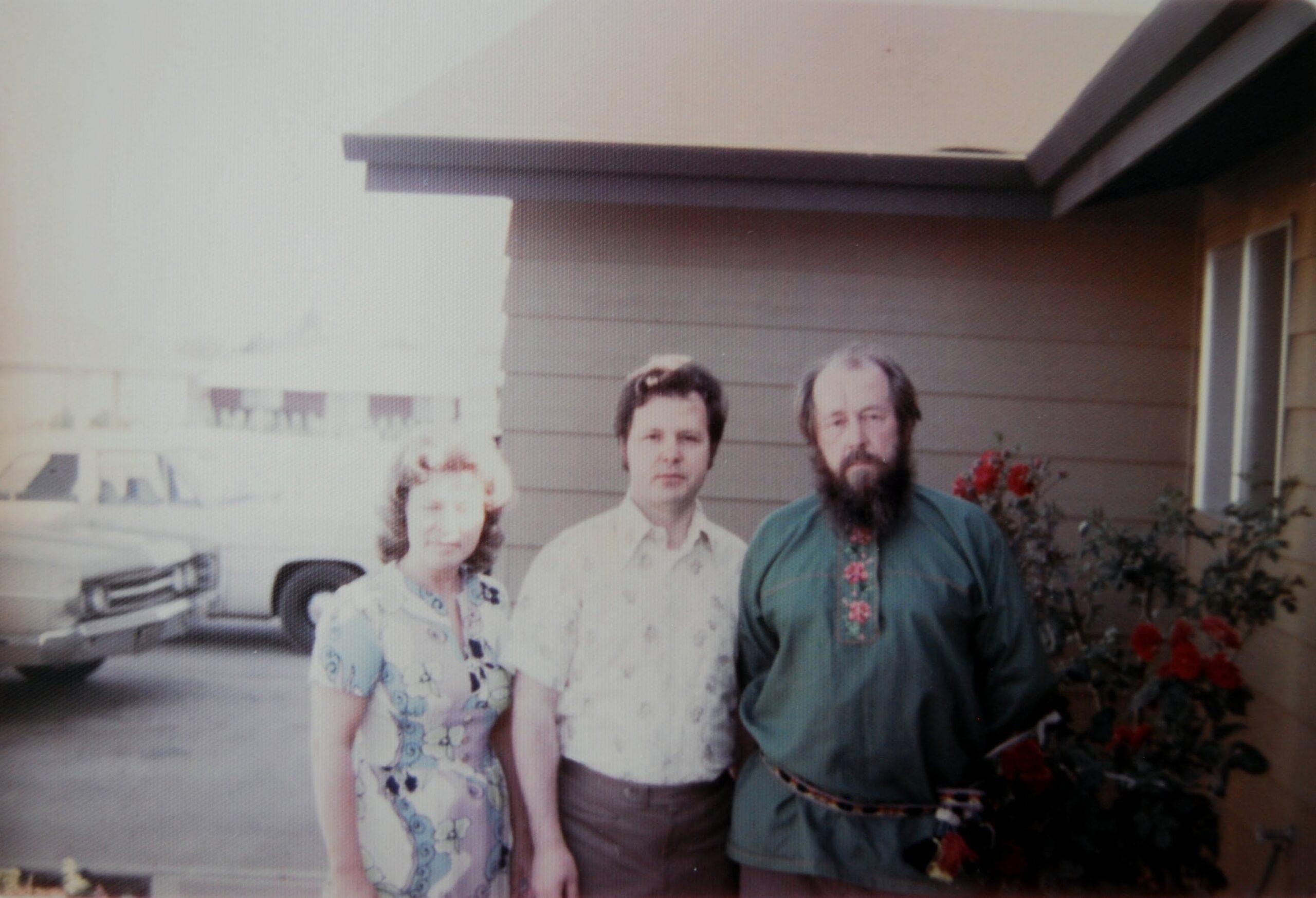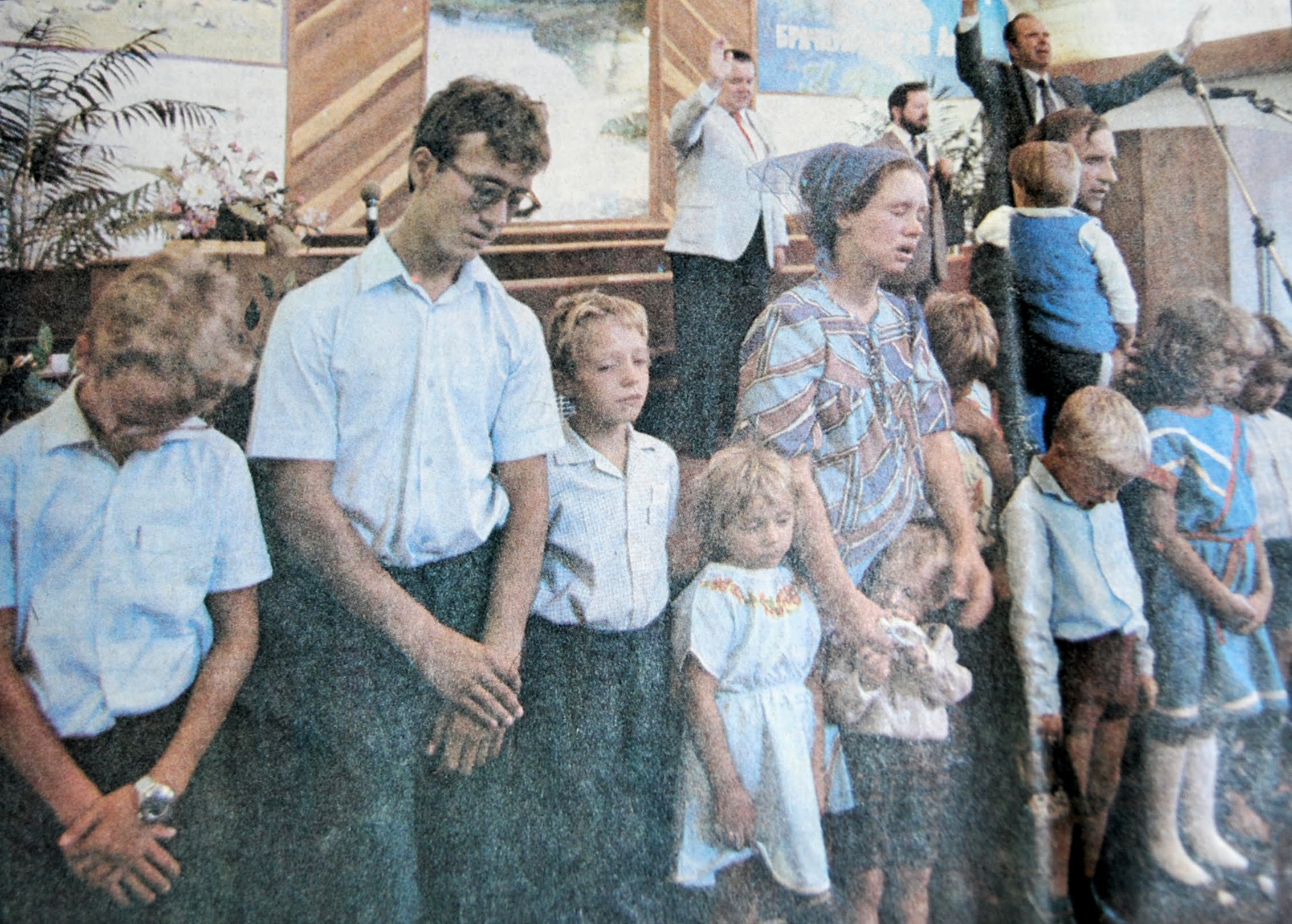
Ben Shevchenko
Ben Shevchenko is the Senior Pastor of the Russian Gospel Church in Hubbard, OR. He has lived in nearby Woodburn since 1974. Since the early 1990s, Mr. Shevchenko and his church were instrumental in sponsoring the arrival of new Russian-speaking Evangelical immigrants in Oregon.
The story of Mr. Shevchenko’s personal immigration was set in motion much earlier, however, before he even was born. In the late 1920s his parents, who lived in a remote provincial village in Ukraine, converted to Pentecostal Christianity under the influence of Ivan Voronaev, a prominent Pentecostal leader who came to Ukraine to do missionary work. However, with the advent of the Stalinist crackdown on religious expression, the new congregation decided to leave Ukraine. First they moved to further east into Siberia, but eventually relocated to China, where they could practice their faith. In 1933 they settled in Ghulja (formerly Kulja), in the present day Xinjiang Autonomous Region of western China. It was there that Ben’s parents met and married, and there that Ben was born in 1937. Shortly after, his parents joined a small group that chose to make their way out of China and travel to America.
Ben’s journey began in 1946 with a long trip across China to Shanghai with his family and others. By 1947, Ben’s family had gotten through the physical and bureaucratic challenges of their journey and made their way to Shanghai, where they hoped to secure passage to America. However, at this time America was not openly accepting immigrants from China because of the increasing prevalence of Communism in Chinese life and politics. Instead, Ben’s family was classified as Russian refugees. The International Refugee Organization (IRO), a group that was assembled in 1946 to provide aid to victims of World War II and eventually to the victims of Soviet injustices, provided aid in the form of food and housing, and in due course secured passage for them to the Philippines.
The next leg of their journey began in 1947, when the IRO moved Ben and his family to the Philippines aboard a ship and then set them up in a refugee camp. They remained there, living in tents and on donated food and supplies, waiting for approval to travel to America, but that would not come. Instead, a year later an ambassador from Paraguay came to offer relocation to Paraguay on terms that included not only full legal status, but provisions for land to be farmed and equipment to use on the land. Ben’s family and another family decided to take this offer and came to Paraguay in 1949. Unfortunately, the promises made by the ambassador differed from the reality – although they were given land, that land was predominantly forested and difficult to farm. Unable to engage in farming in the way they had anticipated, they resorted to work as skilled laborers that travelled to the city to work.

After eight years of living in Paraguay, Ben’s parents decided to immigrate to America. Because the rest of the community that they had left behind in the Philippines, which included relatives to the Shevchenko family, had by this time made it to the US, the process of immigration was now easier. These relatives arranged for immigration visas for Ben’s family and officially became sponsors of the Shevchenkos, which allowed for Ben and his parents to successfully immigrate to San Francisco in 1957. The initial group that came to San Francisco had established a church (presently, the Russian Gospel Temple), and this church acted as the primary support network for Ben’s family when they arrived in America. First, the church secured housing for Ben’s family, which was no small task with Ben’s seven brothers and sisters, parents, and grandparents. They paid for rent for the first month and helped the family members to find jobs, with Ben finding the first job as a watchmaker. Language was also a difficulty. Because Ben was nineteen years old, he was too old to attend high school. Instead, he studied language and American history at night, while working during the day.
After thirteen years of life in San Francisco, Ben got married and had five children. Eventually, his wife expressed a desire to leave San Francisco and relocate to Seattle, Washington. After his wife died of breast cancer shortly following their move, he met his second wife and they heard of a Russian presence in Woodburn, Oregon. The Shevchenkos decided to move to Oregon in 1974. Ben and his family joined some Evangelicals from the initial group in San Francisco who had relocated to Oregon earlier, and together they built the church that would come to be the present-day Russian Gospel Church.

In 1978, Ben was voted to be pastor of the Russian Gospel Church in Hubbard. Ben and his church were instrumental in sponsoring the arrival of new Evangelical immigrants in Oregon. The process began with letters from the Soviet Union requesting visa support for travel to America as refugees. Ben and the church sent affidavits of support to the Soviet Union. Initially, this process was very slow and several years passed until Ben heard from Portland immigration offices that the families he sponsored had been granted approval to leave the Soviet Union and come to America. The church was key in helping the new immigrants get settled by finding housing, jobs, and dealing with procuring official documents such as drivers’ licenses. In time, the church came to rely on the Immigrant and Refugee Community Organization (IRCO) to work with these new immigrants in these capacities. Ben’s wife worked at IRCO as a job developer during this time, helping people find employment. Ultimately, this new influx of immigrants spread around the Portland area. They established their own churches and in turn sponsored their own immigrants, exponentially expanding the Russian community in Portland. None of it would have occurred as it did without the presence of the Russian Gospel Church and the involvement of Ben Shevchenko.
This story is written by Martin Dorciak and it is based on the interview Martin conducted with Mr. Shevchenko in Woodburn, Oregon, July 2, 2014
